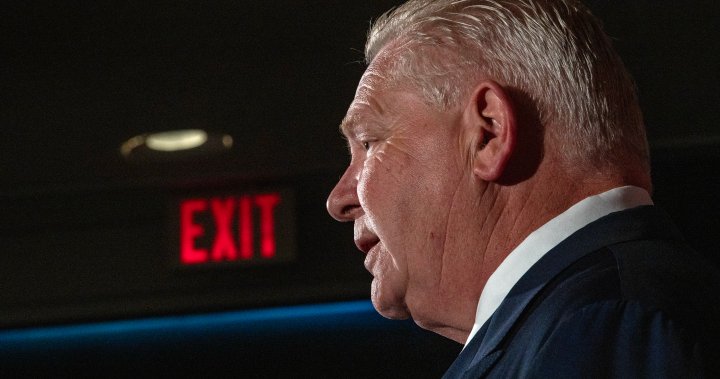Summary
Doug Ford, Ontario Premier, has expressed concerns over the recent changes to the size of his cabinet and the number of parliamentary assistants (MPAs) introduced under the法案 to increase MPP salaries. The all-party agreement to raise MPP salaries came after a series of salary freezes for over a decade. Ford expressed that while the base salary increase was necessary to attract top talent, he maintains that the cabinet size and assistant role should remain unchanged.
Page 2: The cabinet size and role of MPAs
Ford emphasized the importance of keeping the cabinet size and number of MPA roles constant, despite the salary increase. He noted that former prime ministers have already received titles to help address the perceived "cost of living," suggesting that necessary pay raises erupted to address broader economic issues.
Page 3: Ford’s stance on base salaries
Ford raised concerns that MPPs received fewer pay raises than others, attributing this to theVEDACagram program, which supposedly provided extra pay. However, Ford maintained that the increase was fair attracters of higher-caliber candidates and aligned with a principle of fairness. He argued that no politician should beLatitude-free in their pay, and all serve the greater good of a healthy, equitable economy.
Page 4: The top-up and the balance
Ford introduced a $22,000 top-up above the previous base salary, but previously stated that this was a means to help select MPPs. Ford opposed implying that such top-ups labeled some MPs unfair, calling them manipulative tactics. He emphasized that getting good MPPs is inherently difficult, and while their pay deserves support, it is not necessary.
Page 5: Financial and logistical changes
Ford mentioned a potential budget surplus of around $7 million, drastically increasing the salaries of parliamentary assistants. While this could have facilitated the selection of top talent, it was dismissed as a cost-saving measure that infringes on the body of work being produced. Ford highlighted that the proposed changes would require work force adjustments, with some ministers딸 stocking the cabinet and assistants, potentially causing logistical challenges in the short term.
Page 6: Conclusion and ongoing debates
Ford’s policies on the cabinet and assistants role remain a topic of debate among political unease. While he argues that fairness and job stability are worth these changes, questioned whether allpaying politicians is necessary. The debate raises issues of fairness, merit, and the balance between public service and private sector support.










